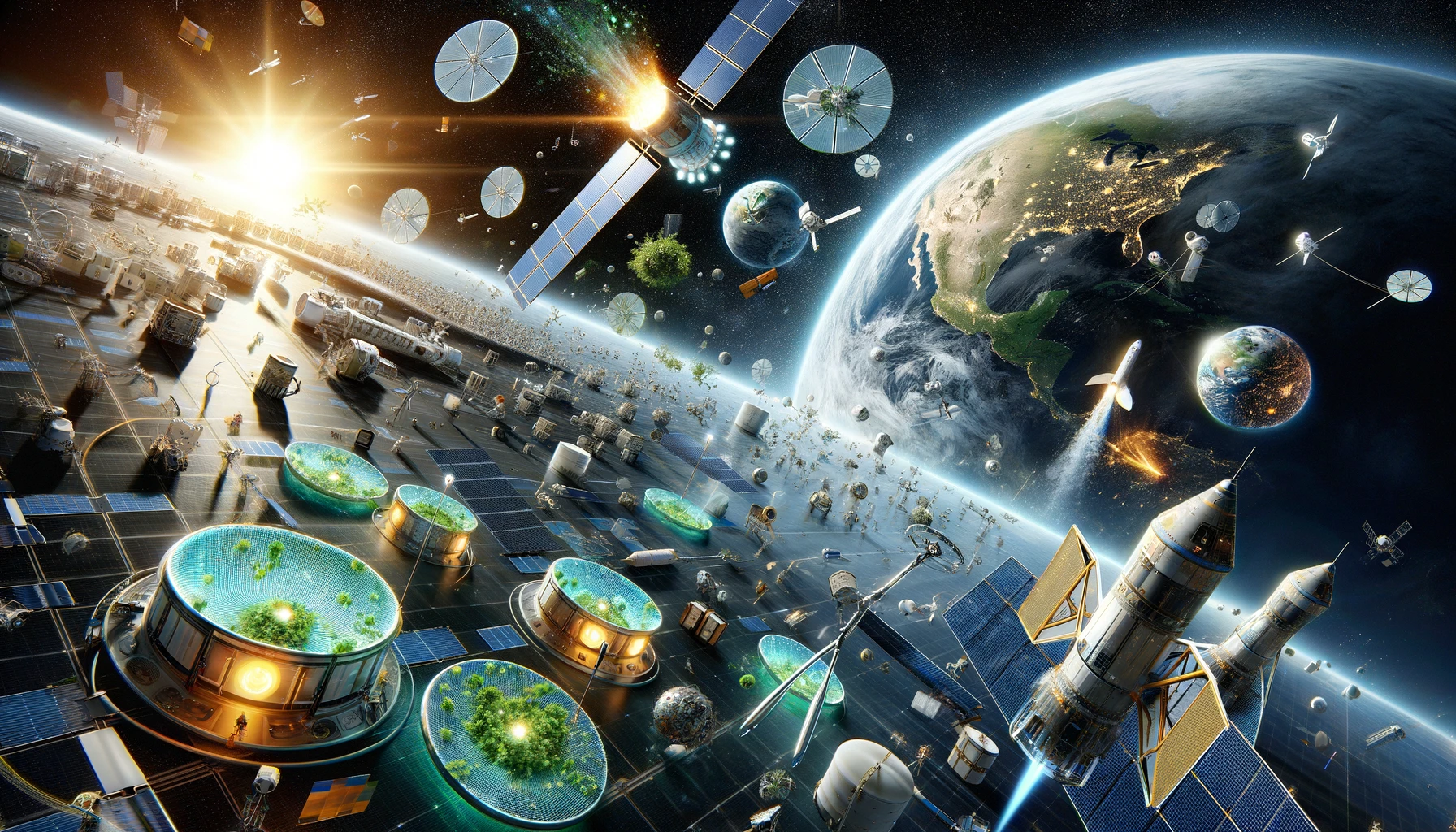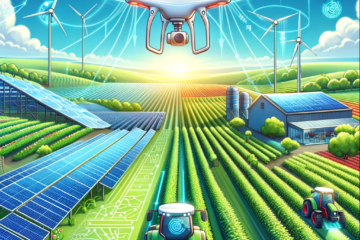As humanity extends its reach into the cosmos, the environmental impact of space exploration becomes an increasingly pressing concern. With debris cluttering the orbits and rocket emissions affecting our atmosphere, the quest for eco-friendly space technology has never been more crucial. This article delves into the pioneering efforts to create a greener space industry, examining groundbreaking technologies and innovative concepts that aim to mitigate the ecological footprint of our extraterrestrial endeavors. From advances in propulsion to the conception of biodegradable spacecraft, we explore the emerging green frontiers of space technology.
Charting the Cosmic Greenscape
The cosmic greenscape represents an uncharted territory where the principles of environmental stewardship intersect with space exploration. As we embark on this voyage, the focus shifts towards developing technologies that not only preserve the celestial realm but also safeguard Earth’s natural resources. Agencies like NASA and ESA, alongside private sector players, are investing in research to identify sustainable materials, energy-efficient processes, and low-impact mission designs. This green vision for space travel is not just an ethical imperative but also a strategic necessity to ensure the longevity of space activities.
Innovations in Space Sustainability
In the realm of space sustainability, innovative ideas and technologies are emerging that promise to reduce the environmental footprint of space missions. One such innovation involves the development of spacecraft that can autonomously deorbit and disintegrate, leaving no trace behind. Others are working on systems to capture and remove existing space debris. Additionally, advancements in manufacturing, such as 3D printing with sustainable materials, are paving the way for more eco-friendly spacecraft construction. These innovations are critical in preserving the space environment and preventing the further accumulation of hazardous debris.
Solar Sailing to Cleaner Orbits
Solar sailing stands as a beacon of hope for achieving cleaner orbits around Earth. This propulsion technique, which harnesses the momentum of photons from the sun, offers a fuel-free method of navigating space, eliminating the need for chemical propellants. Solar sails allow spacecraft to reach their destinations with minimal environmental impact, making them an attractive option for future missions looking to reduce their carbon footprint. As solar sail technology matures, it could revolutionize the way we approach interplanetary travel and satellite maintenance.
Biodegradable Satellites: A New Era
The concept of biodegradable satellites presents a transformative approach to managing space waste. Researchers are exploring materials that can withstand the harsh conditions of space yet decompose harmlessly once their mission concludes. These satellites would naturally disintegrate upon re-entry into Earth’s atmosphere or when prompted, significantly decreasing the risk of space debris collisions. The advent of biodegradable satellites marks the beginning of a new era in which space technology aligns with Earth’s ecological cycles, ultimately leading to a cleaner orbital environment.
Recycling Rockets: The Reusability Race
Rocket reusability has become a cornerstone of modern space exploration, with industry leaders like SpaceX and Blue Origin spearheading the reusability race. Through the development of rockets that can land and be refurbished for multiple flights, these companies are drastically reducing the need for new materials and the volume of space-bound waste. This approach not only conserves resources but also slashes the costs associated with access to space, making it a more sustainable and economically viable frontier for future generations.
The Future of Green Propulsion Systems
As we venture further into the solar system, the future of propulsion systems is set to become greener. Research is ongoing into alternative propellants, such as ionic liquids and water vapor, which offer less toxic and potentially more efficient options compared to conventional rocket fuels. Electric and plasma-based propulsion systems are also advancing, providing spacecraft with low-thrust but highly efficient means of maneuvering in space. These green propulsion technologies are vital for sustainable long-duration missions and could ultimately change the face of space travel.
The green frontiers of space technology represent a critical juncture in human history, as we seek to balance the thrill of cosmic exploration with the imperative to protect our planetary home. As we have seen, pioneering efforts in sustainability, from solar sails to biodegradable satellites, are setting the stage for a new chapter in space travel—one that honors our environmental responsibilities. With continued investment and innovation in eco-friendly space tech, we can look forward to a future where our celestial pursuits harmoniously coexist with the natural world.




